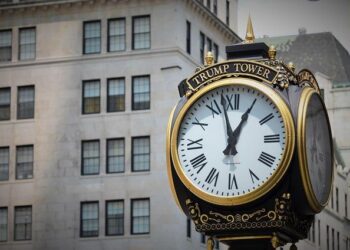Serbia’s Diplomatic Tightrope: Assessing Vučić’s Moscow Visit and Its Regional Consequences
In a notable diplomatic development, Serbian President Aleksandar Vuƒçiƒá recently completed a contentious trip to Moscow, sparking intense debate about the future direction of Serbia’s foreign policy and its position within the European Union and the Western Balkans. This visit highlights Serbia’s ongoing challenge of balancing its deep-rooted historical connections with Russia against mounting pressures to align more closely with European integration efforts. Experts are now scrutinizing how this engagement might influence Serbia‚Äôs geopolitical orientation‚Äîwhether it marks a strategic pivot towards Moscow or complicates Belgrade‚Äôs EU accession ambitions. This article explores the multifaceted outcomes of Vuƒçiƒá’s journey, including regional reactions, Brussels‚Äô stance, and potential long-term effects on Balkan stability.
Shifts in Serbia’s Foreign Policy Post-Moscow Engagement
The recent high-profile meeting between President Vuƒçiƒá and Russian officials has reignited debates over Serbia’s diplomatic trajectory amid competing influences from East and West. As Belgrade attempts to maintain equilibrium between these poles, several critical consequences emerge:
- Tensions with the European Union: A sustained closeness to Russia risks alienating key EU stakeholders who view such ties as incompatible with membership criteria.
- Economic Vulnerabilities: Potential retaliatory measures or diminished Western investment could undermine economic growth sectors reliant on international trade partnerships.
- Balkan Geopolitical Frictions: Neighboring states wary of expanding Russian sway may respond defensively, heightening regional instability.
This rapprochement also appears to embolden nationalist factions within Serbia that advocate for stronger alignment with Moscow—a dynamic that could deepen internal political divides. Analysts emphasize that these developments warrant close observation as they may reshape Serbia’s foreign policy landscape over time. Key areas likely affected include:
| Dimension | Possible Outcome |
|---|---|
| EU Accession Talks | Status quo challenged; risk of delays or setbacks |
| Defense Collaboration | Tightened military cooperation with Russia |
| Civic Sentiment | Divergence in public opinion intensifies polarization |
The Broader Impact: Regional Stability and Relations With Europe Under Strain
The implications of Vuƒçiƒá’s visit extend beyond bilateral relations; they reverberate throughout an already delicate Western Balkans region marked by fragile peace accords and unresolved disputes.
¬Ý
- ¬Ý
- Moscow’s Expanding Soft Power Influence: Increased Russian cultural diplomacy and economic investments risk fueling nationalist rhetoric across neighboring countries.
- Divergent Alliance Paths: By leaning toward Russia, Serbia complicates its path toward EU membership while challenging Brussels’ role as mediator in regional conflicts.
- Sensitivities Around Historical Conflicts: The renewed focus on ties with Moscow may revive old tensions related especially to Kosovo sovereignty issues among Balkan actors reassessing their positions.
¬Ý
¬Ý
¬Ý
¬Ý
A snapshot overview reveals current stances across key players in the region along with possible consequences for stability:
¬Ý
| Nation/Entity | Status Quo Positioning | Looming Challenges/Risks |
|---|
This evolving scenario compels Brussels to reconsider its strategy toward both Belgrade specifically and broader Balkan affairs generally. Enhanced diplomatic engagement combined with incentives promoting cross-border cooperation might help steer Serbia back onto a pro-European course while safeguarding overall regional security interests amid growing external influences.
Navigating Complex Diplomacy: Strategic Approaches Moving Forward
The timing of President Vuƒçiƒá’s outreach comes at a sensitive juncture given heightened geopolitical tensions across Eastern Europe following recent conflicts involving major powers. To mitigate adverse repercussions while preserving constructive dialogue channels, several strategic recommendations emerge for Serbian policymakers alongside international partners alike:
- Pursue Inclusive Multilateral Forums: Bolster collaboration frameworks involving both EU members and non-aligned neighbors ensuring balanced diplomacy accommodating diverse interests without alienation.
- Cultivate Transparent Communication Channels: A clear articulation regarding motivations behind engagements like the Moscow visit can alleviate mistrust among European allies concerned about commitment levels.
- Energize Civil Society Participation: An informed public discourse around foreign policy decisions enhances legitimacy domestically while fostering resilience against divisive narratives.
| Diplomatic Initiative | Aimed Result |
|---|---|
| Forge Regional Security Coalitions Enhance collective defense capabilities deterring external interference & fostering trust among neighbors. Initiate intercultural exchange programs. Host high-level summits reaffirming dedication towards European integration goals alongside collective security commitments. A Glimpse Ahead: What Lies Beyond Vuƒçiƒá‚Äôs Diplomatic Gambit?The aftermath of Aleksandar Vuƒçiƒá’s latest excursion into Russian territory presents pivotal questions regarding not only where Serbian foreign policy is headed but also how this will ripple through an already volatile Balkan environment. While Western capitals remain vigilant about increasing Kremlin influence near NATO borders‚Äîespecially after ongoing conflicts elsewhere‚Äîthe choices made by Belgrade will be dissected thoroughly at home as well as abroad. The spectrum of possible outcomes ranges from recalibrated alliances affecting trade flows all the way through shifts in military partnerships impacting security architectures across Southeast Europe. As global power dynamics continue evolving rapidly throughout mid-2024‚Äîwith new data showing fluctuating support levels within Serbian society‚Äîthe coming months will prove decisive in determining whether this maneuver represents temporary realignment or signals deeper transformation. Regional governments along with international organizations must therefore stay alert yet proactive‚Äîengaging constructively where possible‚Äîto ensure that peacebuilding efforts remain robust amidst changing allegiances. Ultimately, monitoring these developments closely will be essential for anyone invested in maintaining balance within one Europe’s most geopolitically sensitive zones. ADVERTISEMENT |















